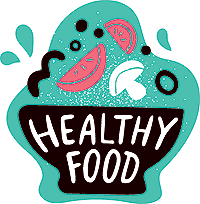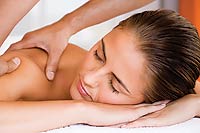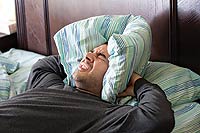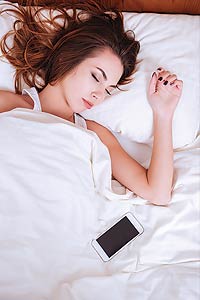|
|
HEALTHY HAPPENINGS - November 2021
|
Managing Wellness Through the Holiday Season
by Maggie Keating, Marketing and Outreach Coordinator of Moonflower Community Cooperative
|
When the temperatures finally drop after the long, sweltering Moab summers, time can feel like it’s speeding up as we jump back into doing the things we enjoy in this beautiful landscape. Sometimes it can feel like we’re so busy in the fall that the holiday season creeps up on us out of nowhere. If you’ve found yourself in this circumstance and are feeling stressed about it, try the following tips for managing your stress, nutrition, and wellness through this time of the year.
 Eat nutrient-dense foods. Despite being surrounded by festive goodies at holiday parties or having homemade treats practically shoved down your throat, you can decide what you put into your body. If you know you’ll be attending gatherings where such foods might be present, consider snacking beforehand on nutrient-dense foods, especially fruits and vegetables. If you are going to treat yourself to sweets, avoid having them first thing in the morning, which will spike your blood sugar, send your insulin levels on a roller coaster, and cause cravings for the rest of the day. Make your own food from scratch so you can control ingredients such as sugar, salt, and inflammatory foods. Slow down, savor your food, and give your brain time to signal to your body that you’re full. Eat nutrient-dense foods. Despite being surrounded by festive goodies at holiday parties or having homemade treats practically shoved down your throat, you can decide what you put into your body. If you know you’ll be attending gatherings where such foods might be present, consider snacking beforehand on nutrient-dense foods, especially fruits and vegetables. If you are going to treat yourself to sweets, avoid having them first thing in the morning, which will spike your blood sugar, send your insulin levels on a roller coaster, and cause cravings for the rest of the day. Make your own food from scratch so you can control ingredients such as sugar, salt, and inflammatory foods. Slow down, savor your food, and give your brain time to signal to your body that you’re full.
Hydrate. While you might not be sweating as much as in the summer, it’s as important as ever to make sure you are hydrated during the colder months. Water is necessary for your cells’ basic functions as well as for detoxifying, which may be helpful after indulging a little during the holidays. Also, thirst is often disguised as hunger, so if watching your weight is a concern, drinking water before eating can help you feel fuller and prevent overeating.
Tend to your mental health. Extra commitments, expectations, sentimental memories, and seasonal changes can all cause added stress around the holidays. Practice mindfulness so you can recognize your body’s needs, whether you’re hungry or really just thirsty, have a nutrient deficiency, or need a mental break. Try meditation, yoga, going for a walk, journaling, taking a hot bath, or whatever works for you.
Get enough good quality sleep. Aim for at least 7 or 8 hours of good quality sleep each night, on approximately the same schedule if possible. Sleep is necessary for the body to perform much of its internal repair and maintenance, and sleep deprivation can negatively affect your mood, brain health, and weight.
Get moving. Make time to get some exercise this season amidst the potential challenges of busy schedules and less sunlight. Even a brisk walk for 10-30 minutes can help relieve stress and anxiety, release endorphins, and offset additional goodies you may be consuming. If you’re really feeling crunched for time, try integrating simple exercises into your daily routine, such as parking at the far end of the parking lot or walking around while talking on the phone.
Find nutritious, local produce, whole foods, and dietary supplements at Moonflower Community Cooperative to help you get through this stressful time of year. Taking care of your mind, body, and spirit will allow you to enjoy the holidays and connect with loved ones in a meaningful way. Have a happy, healthy, and safe holiday season!
|
The Benefits of Massage Therapy During the Fall Season
by Meagan Coy, LMT and owner of M.C.’s Healing Arts in Moab
|
Autumn is officially upon us, and what a lovely time it is here in the Moab area! After a very hot summer season that felt like it would never end, the shift in weather that has occurred is a nice reprieve. The fall season is also a time of year in this area where we tend to be more active, getting the itch to do the longer hikes and bike rides that weren’t as accessible to us in the hotter weather. With this increase in activity, it is important to remember that our bodies like to mimic our environments.
 The earth is retracting energy to save up through the winter, causing the growth in our outer world to start to slow down and eventually stop. Our systems inherently want to do the same thing and not exert as much energy right now so that we can have enough to preserve us during the colder months. When we over-exert our bodies this time of year, we have a greater chance of compromising our immune systems, which makes us more susceptible to getting sick. And this year with everything going on in the world around us, having a healthy immune system is more important than ever! The earth is retracting energy to save up through the winter, causing the growth in our outer world to start to slow down and eventually stop. Our systems inherently want to do the same thing and not exert as much energy right now so that we can have enough to preserve us during the colder months. When we over-exert our bodies this time of year, we have a greater chance of compromising our immune systems, which makes us more susceptible to getting sick. And this year with everything going on in the world around us, having a healthy immune system is more important than ever!
It is important to take time in between activities to properly rest and give ourselves the self- care that our bodies crave in order to stay healthy. One of the beneficial things that you can do for yourself this time of year (and anytime really!) is to treat yourself to a massage therapy session. It is a great way to help keep your immune system balanced and healthy and allows your body and mind to drop into a deep sense of relaxation that is like putting your internal garden properly to rest for the winter season. I wanted to highlight some of the beneficial ways that massage therapy can help strengthen the immune system and flush toxins out of the body in order to keep us in optimal health going into the colder months.
Massage is known for increasing blood circulation and lymphatic flow, which helps move healthy nutrients throughout your body and to filter out metabolic waste. Flushing out metabolic waste is important because it helps regulate and balance the body’s temperature and helps move out stagnation that can build up in our bodies from using up energy.
Studies have shown that massage can increase the level of lymphocytes, which are a type of white blood cell that helps the immune system fight off harmful substances in the body. There are B and T type lymphocytes. B lymphocytes become cells that produce antibodies, which attach to a specific antigen and make it easier for the immune cells to destroy the antigen. T lymphocytes attack antigens directly and help control the immune response.
Stress has been shown to be a significant suppressor to our immune systems. Massage therapy can help reduce the level of cortisol, a stress hormone, and trigger a deep sense of relaxation and stress relief to our entire system. This is important because high levels of cortisol can hinder functions that would be helpful in a fight-or-flight situation, which can then alter immune system responses.
According to the National Center for Biotechnology Information, pain has measurable negative effects on immunity. Massage has an enormous impact on decreasing pain in the body, whether from injury, muscle soreness or tension from stress. Decreasing this pain will make it easier for your body to fight off an illness.
Massage is great for mental health. Your mind is a direct link to your body and a healthy mind promotes a healthy body.
So, here’s to self-care and keeping ourselves healthy during this time of transition during the fall season. I’ll leave you with a Buddhist prayer that I silently say at the end of every massage session: “May you be happy, May you be healthy, May you be free from suffering, May you be at Peace.”
|
Are You Getting the Sleep You Need?
by Ray Andrew, MD |
You may recognize that you don’t function as well on less than 7-9 hours a night, but there is much more to sleep than being unconscious for a period of time. Your health and vitality depend on the quality and timing of your sleep as well. For example, studies have found that your most restorative sleep occurs between 10 PM and 2 AM.
 Moreover, there is a big difference between healthy sleep and the kind that is produced by prescription and over-the-counter “knock-out” drugs, including alcohol. The problem with manmade chemical approaches to sleep is twofold. First, whatever is causing your insomnia is not being addressed and will continue to affect other aspects of your health. Second, the kind of sleep these drugs induce is not conducive to the work that is supposed to be accomplished during sleep. Tracings of electrical activity in the brain known as EEGs have demonstrated that artificial sleep does not create the brain waves that are necessary for rest, recovery, memory formation, immune function, and repair of damaged tissues. Moreover, there is a big difference between healthy sleep and the kind that is produced by prescription and over-the-counter “knock-out” drugs, including alcohol. The problem with manmade chemical approaches to sleep is twofold. First, whatever is causing your insomnia is not being addressed and will continue to affect other aspects of your health. Second, the kind of sleep these drugs induce is not conducive to the work that is supposed to be accomplished during sleep. Tracings of electrical activity in the brain known as EEGs have demonstrated that artificial sleep does not create the brain waves that are necessary for rest, recovery, memory formation, immune function, and repair of damaged tissues.
A healthier approach requires identification and treatment of whatever dysfunctions are driving your insomnia in the first place. Is it a hormone imbalance? Deficiency of progesterone, testosterone, and/or estrogen may be the culprit. Is it stress, anxiety, depression, or PTSD? One woman I know, as a young girl, asked a family member where Grandma went when she died. “She went to sleep.” Knowing that this is what the vet does to pets with life-threatening illness or injury, Jane has forever since feared going to sleep and not waking up the next morning.
Poor sleep has many other causes as well. Do your adrenal glands make too much or too little cortisol at bedtime? Do you have bladder dysfunction? Do you swallow anything with caffeine in it, even in the morning? Could it be a microorganism, such as a parasite, virus, bacterium, or yeast overgrowth? How about an unresolved emotion, such as anger, resentment, blame, shame, or grief? Sleep is also impaired by toxins such as household chemicals, endocrine disrupters, and heavy metals (lead, mercury, arsenic, etc.). You may have sleep apnea and not even know it. Aches and pains can rob you of precious sleep, and can often be resolved without drugs or surgery.
Two causes of poor sleep that most people are unaware of include melatonin deficiency and unhealthy electromagnetic fields (EMFs). In the office, we are seeing these more and more on biofeedback scans.
Melatonin is made by the pineal gland in response to dark. Before the advent of electricity, our ancestors’ brains made melatonin as the sun went down and the environment got darker and darker. Similarly, you can improve your melatonin production by dimming the lights two hours before bedtime and avoiding electronic screens (cell phones, computers, tablets, televisions). If you cannot avoid screens, you can at least wear blue light-blocking glasses, which are inexpensive and widely available.
Your room needs to be completely black at night. Appliance and charger lights need to be covered. Moonlight needs to be blocked as well. If you need a night light to avoid tripping over furniture, use a red bulb, which does not affect melatonin production.
Unless you live completely off the grid, you are being constantly bombarded with EMFs. They include radio waves, television waves, cell phones, and Wi-Fi. You likely feel they are harmless because you cannot feel them. Keep in mind that you cannot feel your blood pressure, cholesterol, and blood sugar, either—until your heart attack. Contrary to what you may have heard, 5G is the most dangerous of all our current EMFs.
Unfortunately, you cannot completely avoid unhealthy EMFs. But you can reduce your exposure to them. Although it’s best to keep your cell phone in airplane mode all the time, you may not find this very practical. What you can do is keep it as far away from you as circumstances permit at any given time. Whenever you are sitting down, consider putting it on a table, the floor, or a seat next to you. At night, definitely turn it on airplane mode (your alarm will still work) unless you have to take calls during your sleep. In that case, move it as far away from your body as you can while still being able to hear the ringer. Avoid blue tooth, which amplifies signals dramatically to reach you without an antenna.
And don’t forget Wi-Fi! It might be at the other end of your house, but if you have a signal at all, you are being bombarded with EMFs all night long. You can either unplug the Wi-Fi router(s) or attach it to a timer so it loses power at a certain time of night.
You may notice that you sleep better and feel more energized in the morning after implementing these two changes. Even if you notice no difference, however, your body does know the difference. So do yourself a favor.
What else can you do to improve your sleep quality and your health? Avoid eating, drinking, and exercising within two hours of bedtime. Eating diverts blood flow away from your brain and requires your body to focus on digestion while it should be working on repair. Drinking anything increases your need to get up to urinate in the night. Exercise is energizing and can increase cortisol too much at a time when it should be at its lowest point for the day. Bioidentical hormones, ozone therapy, and PRP can help both men and women reduce nighttime voids.
If you need help sorting out and fixing what is keeping you awake at night, talk with a functional medicine doctor. We are trained in identifying and treating underlying causes of a wide variety of health problems.
|
|
|
|
|
|
|
|
|
|
|
© 2002-2024 Moab Happenings. All rights
reserved.
Reproduction of information contained in this site is
expressly prohibited.
|
|